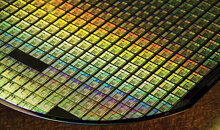Monday, June 8th 2020

TSMC Accelerates 2 nm Semiconductor Node R&D
TSMC, the world's leading semiconductor manufacturing company, has reportedly started to accelerate research and development (R&D) of its next-generation 2 nm node. Having just recently announced that they will be starting production of a 5 nm process in Q4 of 2020, TSMC is pumping out nodes very fast and much faster compared to competition like Intel and Samsung. Having an R&D budget of almost 16 billion USD, TSMC seems to be spending the funds very wisely. The 5 nm node is going into volume production this year, and smaller nodes are already being prepared.
The 3 nm node is going into trial production in the first half of 2021, while the mass production is supposed to commence in 2022. As far as the 2 nm node, TSMC has recently purchased more expensive Extreme Ultra-Violet (EUV) lithography machines for the 2 nm node. Due to the high costs of these EUV machines, TSMC's capital spending will not be revisited this year and it should remain in the $16 billion range. As far as a timeline for 2 nm is concerned, we don't know when will TSMC start trial production as the node is still in development phases.
Sources:
Moeny UDN, via @chiakokhua (Twitter)
The 3 nm node is going into trial production in the first half of 2021, while the mass production is supposed to commence in 2022. As far as the 2 nm node, TSMC has recently purchased more expensive Extreme Ultra-Violet (EUV) lithography machines for the 2 nm node. Due to the high costs of these EUV machines, TSMC's capital spending will not be revisited this year and it should remain in the $16 billion range. As far as a timeline for 2 nm is concerned, we don't know when will TSMC start trial production as the node is still in development phases.

8 Comments on TSMC Accelerates 2 nm Semiconductor Node R&D
I like companies like that.
A R4000 on improved 7nm would feel like a good purchase to me.
Although no one can say when chips made entirely from carbon nanotubes will hit the shelves, Shulaker says it could be fewer than five years. “We think it’s no longer a question of if, but when,” he says.
7nm for 2021;
5nm for 2023;
3nm for 2025;
2nm for 2027;
14 angstrom (14 Å or 1.4nm) for 2029-2030..
www.tomshardware.com/news/intel-process-roadmap-shows-14nm-in-2029-two-year-cadence
jk jk lol
Already we are hearing '14nm is better because it clocks like mad, and 10 does not'... can you feel it?
Its not long before node shrinks are entirely marketing, its already pretty misty in 'nm' land.